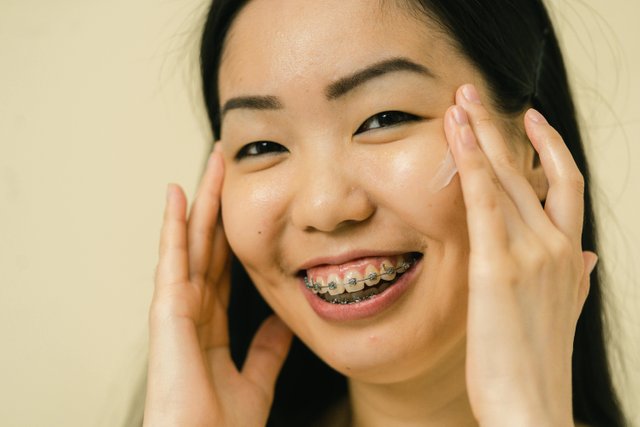Fake Braces - Beware of the Dangerous Trend
Fake braces, often known as fashion braces, are merely cosmetic appliances created from a piece of wire and brackets. The wire is shaped to fit the outside of your teeth before being joined to them.
They serve no purpose other than decoration. While this may appear to be a harmless fad, it might have serious consequences for your health.
What Makes Fake Braces Dangerous?
Fake braces, which are never fitted by a certified NYC orthodontist, can create several issues.
Fake braces can pose the following risks:
- Choking risk (braces may unravel and end up in your throat as you sleep, causing choking);
- Infection and poisoning from poisonous and filthy materials (e.g., cheap rubber);
- Mouth sores and infections that may require surgery;
- Shifting of teeth (you may end up with more crooked teeth);
- Glue can cause tooth rot and enamel discoloration;
- Tooth loss;
- Foul breath;
- Fake braces are fitted without the involvement of an orthodontist or dentist.
No fashion fad is worth jeopardizing your dental health. If you or your kid absolutely require orthodontic treatment, schedule a consultation with a doctor. They provide a variety of treatment alternatives and payment solutions to meet every requirement.
Are Fake Braces Illegal?
Many nations prohibit fake braces owing to major health and safety issues. Thailand, for example, prohibits the sale and usage of false braces, classifying them as unregulated medical equipment. These prohibitions are frequently motivated by reports of infections, poisoning from poisonous chemicals, and even deaths caused by badly produced fake braces.
The penalties for selling or wearing false braces vary by area, but can include large fines, jail, or both. In Thailand, merchants who sell phony braces risk up to six months in prison and large monetary fines. Similar penalties apply to dealers and makers in the Philippines, where authorities are seeking to put an end to unlawful activities.
Health officials and regulatory entities in impacted areas have undertaken awareness campaigns to inform the public about the hazards of fake braces. These commercials frequently emphasize the risks of infections, choking hazards, and long-term oral damage from unauthorized products and poor application.
Furthermore, officials work with e-commerce sites to remove listings for fake braces and execute raids to recover counterfeit goods. Partnerships with schools and community groups can assist in communicating the word to teens and parents, who are frequently the target market.
How to Identify and Avoid Fake Braces
- Made of inexpensive, low-quality materials such as inferior metals or plastics;
- Materials can rust, shatter, and create allergic responses;
- Applied without professional instruments or sterilization;
- Glues and adhesives are often used, causing tooth and gum damage.
In contrast to medical-grade braces, they may include flamboyant designs or cartoon figures.
Fake braces are usually easy to spot if you know what to look for. They are usually built of inexpensive materials, such as low-quality metals or polymers, which may not exceed safety regulations.
These materials may rust, shatter, or create allergic responses. Furthermore, imitation braces are typically administered without the use of expert instruments or sterilization, instead relying on glue or adhesives that can harm teeth and gums. Their design may be bright or feature cartoon characters, which is another false flag, as true orthodontic braces are intended for medicinal objectives rather than aesthetics.
Tips to Identify Genuine Orthodontic Clinics and Products
Dental procedures, including braces, should be performed only by certified specialists. Orthodontists have extensive training to ensure that they can identify and correct crooked teeth in a safe and effective manner.
To prevent falling for phony braces, make sure you only see qualified dental specialists. Look for credentials like certificates or licenses on display in the clinic. Genuine orthodontic treatments are only accessible from licensed dental clinics and are fitted by trained orthodontists. Be wary of services promoted on social media or informal channels that offer unusually low pricing.
When purchasing orthodontic equipment such as retainers or replacement aligners, always ensure that they are from a legal supplier. Braces or aligners should come with paperwork, such as a written treatment plan from your orthodontist, and should never be purchased over the counter or online without a consultation.
